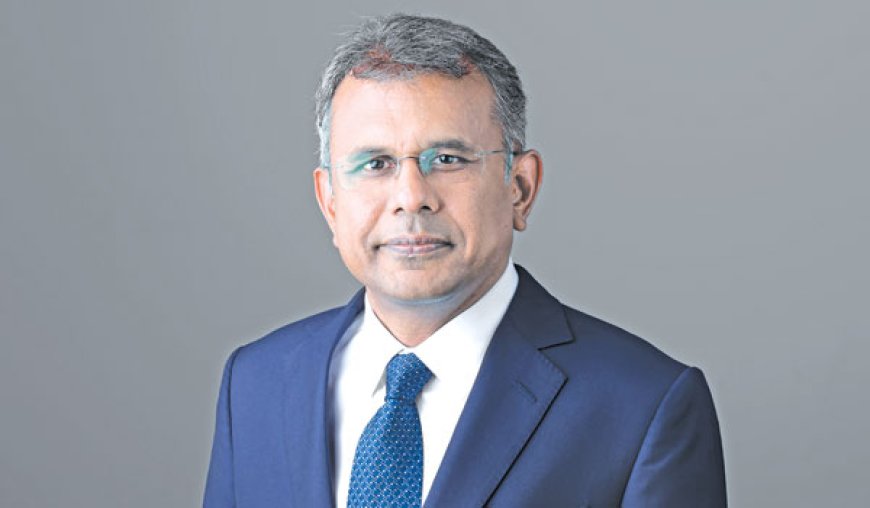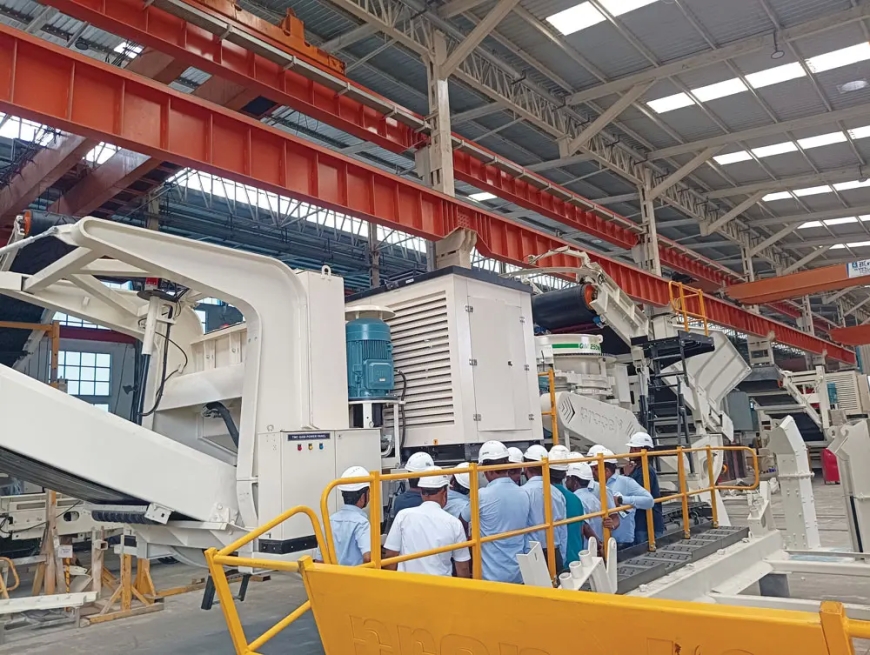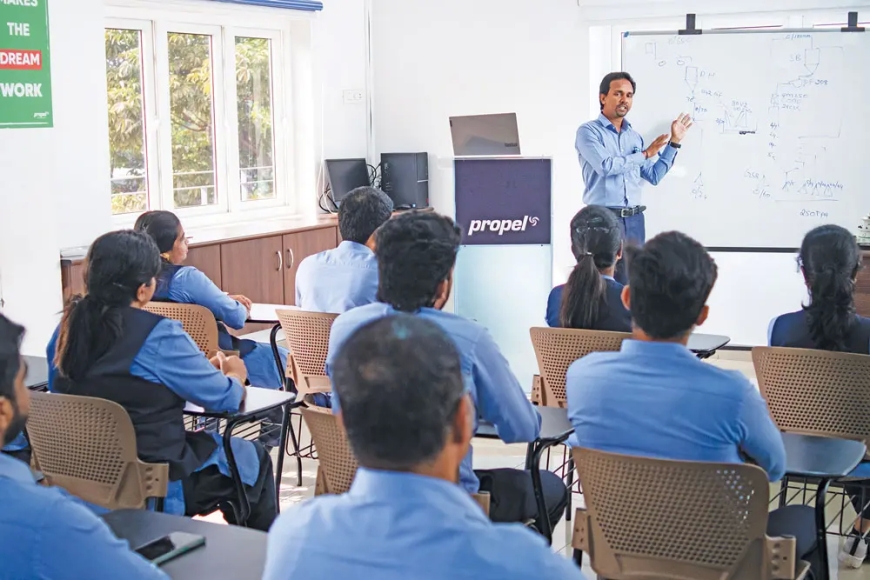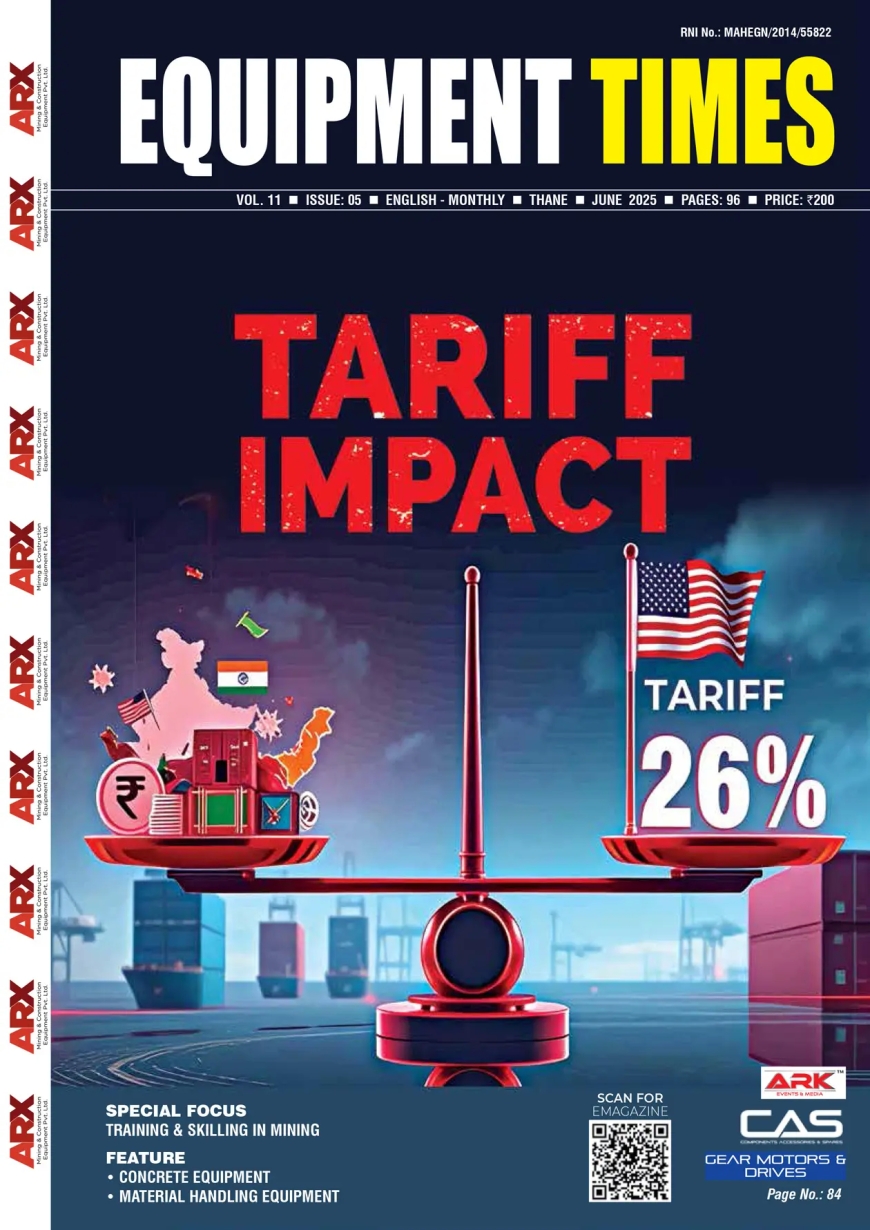Government initiatives like the Skill India mission are instrumental in creating structured training ecosystems.
Training and skilling are critical in today’s mining equipment industry due to increasing equipment complexity, automation, and elevated focus on safety and productivity.

V. Senthilkumar
Managing Director, Propel
How critical is training and skilling in today’s mining equipment industry? How has the approach towards workforce training evolved over the last few years?
Training and skilling are critical in today’s mining equipment industry due to increasing equipment complexity, automation, and elevated focus on safety and productivity. At Propel, we have observed a significant shift from classroom-based sessions to structured, tech-enabled learning interventions. The emphasis has moved towards continuous learning, competency mapping, and hands-on experience.
What are the key skill gaps you observe among operators, technicians, and maintenance teams handling mining equipment?
Key skill gaps include:

• Limited understanding of advanced hydraulic and electrical systems.
• Lack of diagnostic and troubleshooting skills.
• Basic communication and reporting skills, especially for field technicians.
• Poor Preventive Maintenance Practices.
• Safety Awareness & Compliance.
These gaps impact efficiency, safety, and equipment uptime.
What are the major mining-related training and skilling initiatives undertaken by your company for your employees, operators, and customers?
Propel has implemented several initiatives:
• Annual Training Calendar aligned with competency gaps.
• Structured Induction training for GETs, DETs, and other staffs.
• Operator and technician skilling workshops across India.
• On-site and factory-based training for customers.
• Customized modules for product knowledge, maintenance, and troubleshooting.
• A state-of-the-art Training Center for Manufacturing Excellence is currently under development, aimed at enhancing hands-on learning and technical skill development for employees, operators, and industry partners.
• We also collaborate with skill development institutes for certification programs.

What innovative training methods (e.g., simulators, VR-based training, online modules, hands-on workshops) are you using to upskill personnel? How effective have these been?
We use a blended learning approach:
• Classroom & Hands-on workshops.
• Simulation Trainings.
• E-learning modules through our internal LMS for product, safety, and soft skills.
• Field demos and case study-based learning.
It builds strong technical, safety, and soft skills for real-world performance.
What are the major challenges you face in implementing effective training programs in India? (e.g., geographic diversity, varying education levels, technological adoption, etc.)
Key challenges include:
• Geographic spread and remote site locations.
• Varied education levels and language barriers.
• Resistance to adopting digital learning in rural areas.
• High attrition rates among operators and after-sales engineers.
To address these, we are actively developing scalable systems and structured processes aimed at overcoming these barriers in a short time, ensuring consistent learning delivery and workforce retention across all locations.
How do you ensure that your dealers and channel partners are adequately skilled to support mining customers across India?
We follow a structured approach:
• Regular dealer training programs.
• Certification tracks for sales, service, and parts teams.
• Regular product updates, live demos, and tech webinars.
• Continuous support through Propel’s CCM systems.
This ensures uniform service quality and customer satisfaction nationwide.
How do you see the role of government initiatives (like Skill India Mission) and industry collaborations in enhancing skill development in the mining sector?
Government initiatives like the Skill India mission are instrumental in creating structured training ecosystems. We believe industry collaboration is key to aligning the curriculum with real-world requirements. Propel is open to partnering with government and private bodies to co-develop modules, offer apprenticeships, and create job-ready professionals for the mining equipment space.








